5 easy ways to garden sustainably this summer
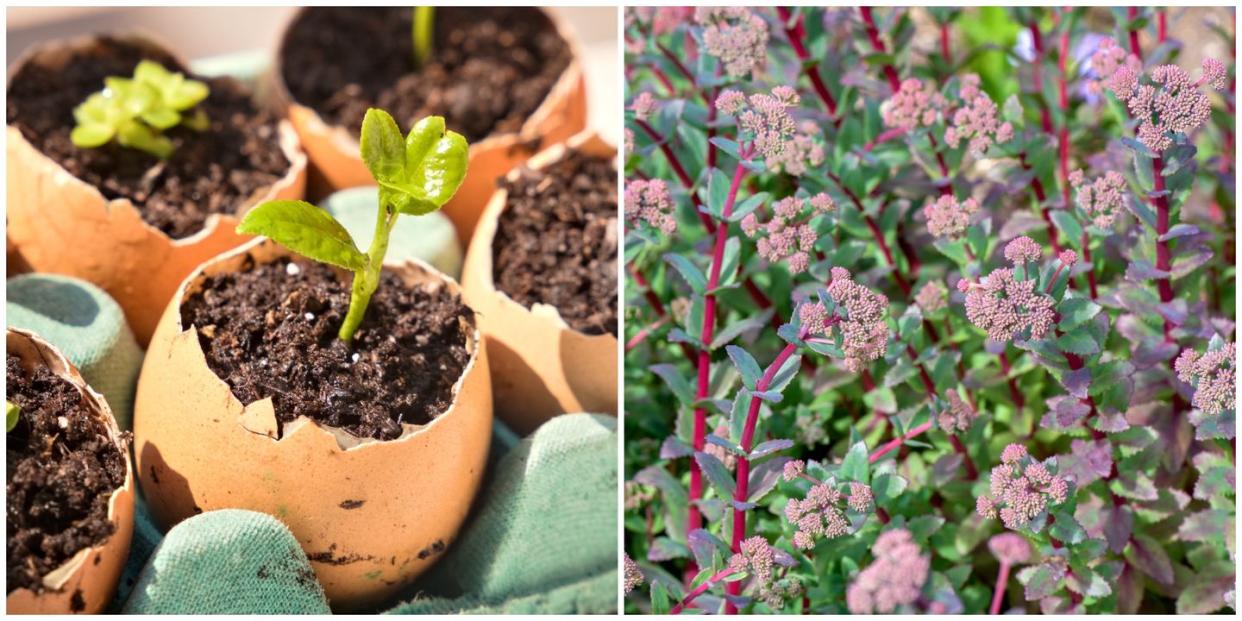
As we become more eco-aware and move towards more sustainable gardening practices, it can be tricky to know exactly how to implement them in our own garden. But good news: there are some simple, cost-effective ways to get started. We've turned to the experts at British Garden Centres for their top tips on how to garden sustainably.
Eggshells
• Eggshells are valuable organic additives for the garden, providing high levels of calcium that benefit plants
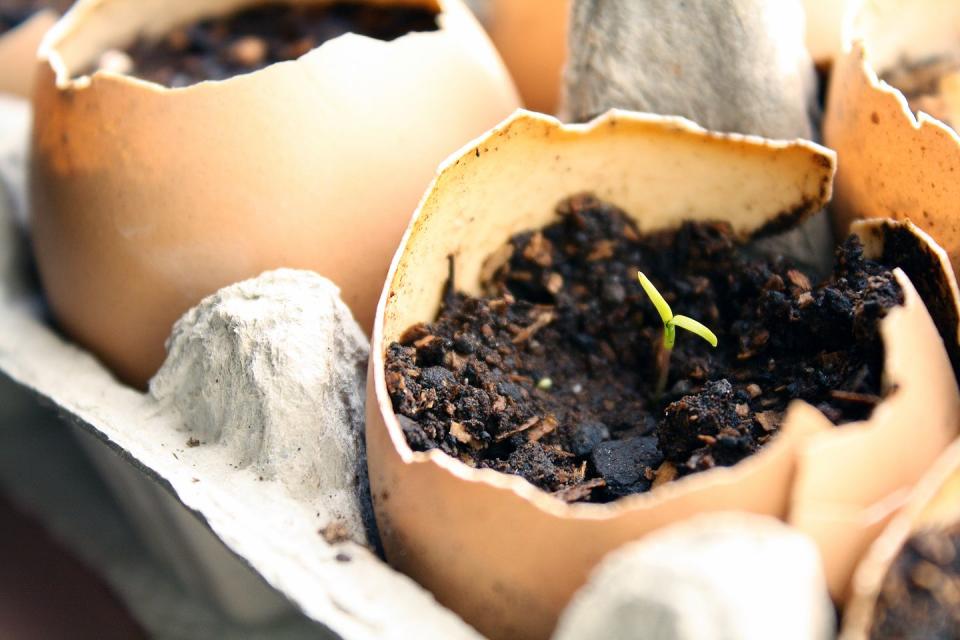
Eggshells have a number of benefits for your garden, so instead of throwing them away when you next make breakfast, you can actually use them to help your plants.
'Crushed eggshells serve as an effective fertiliser, supplying calcium that moderates soil acidity and supports the growth of vegetables, flowers, and fruit trees,' say the experts. It can also be added to your compost. Just remember to rinse the shells before adding them to the compost bin to avoid attracting animals.
Eggshells also help to deter pests such as slugs, snails and cabbage white butterflies when sprinkled around plants, and can help in keeping cats away from garden beds.
Finally, eggshells can also be used as mini plant pots. Simply fill the halved shells with seed compost and once the seedlings are ready, the entire shell can be transplanted into the garden, with it enriching the soil as it decomposes.
Coffee grounds
• Coffee grounds can boost your garden's health and productivity
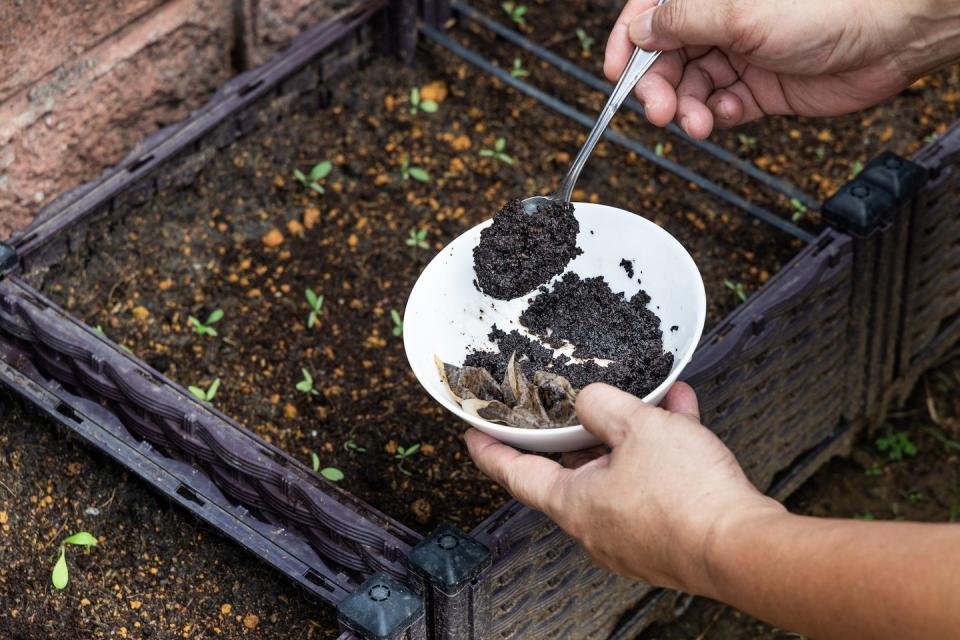
Coffee grounds can provide essential nutrients and even slightly acidify the soil, which is particularly beneficial for acid-loving plants like rhododendrons, hydrangeas, ferns and azaleas.
You can either apply the grounds directly as a form of mulch, or mix it into the soil to give nutrient levels a boost. Much like eggshells, coffee grounds can deter pests such as slugs and snails because of their abrasive texture and caffeine content. 'Coffee grounds are also an excellent green material for composting, adding nitrogen to balance carbon-rich materials,' the experts reveal.
Companion planting
• Companion planting enhances pest and disease resistance, promotes pollination, conserves space, increases productivity and attracts beneficial insects
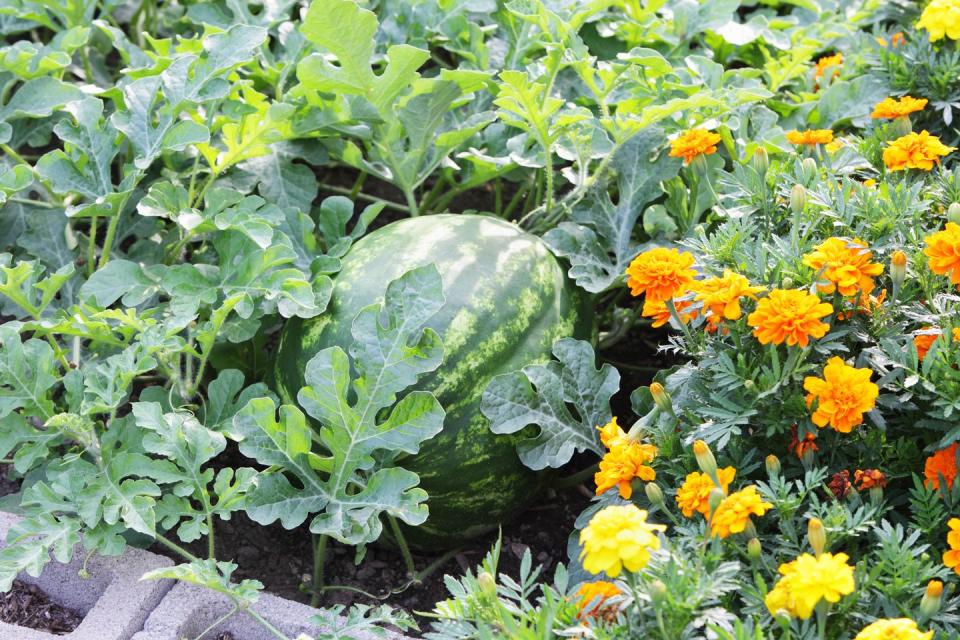
If you’ve not already heard of companion planting, it’s the process of growing different plant species together to mutually benefit one another. Not only does it improve productivity, but it also promotes pollination in the garden and helps to repel pests and diseases.
You may have heard of the 'three sisters method' whereby beans, sweetcorn and squash are planted together. This is because ‘beans fix nitrogen for the soil, sweetcorn provides support for beans, and squash retains soil moisture and suppresses weeds', the experts at British Garden Centres explain.
There are plenty of combinations to try: Marigolds can repel pests when planted with vegetables, while onions protect carrots from root flies. Clover enriches the soil with nitrogen, providing a habitat for pest-controlling spiders when planted with vegetables like cabbage and broccoli. Sweet peas protect courgettes from pests, and lavender paired with chilli deters harmful insects.
If you’re looking to keep your roses in tip top condition, garlic can actually deter pests, attract pollinators and even enhance fragrance. While herbs like thyme, sage, and rosemary can keep cabbage moths away from brassicas, and basil can improve tomato flavour and repel pests.
Plant a dry garden
• A dry garden minimises water usage and reduces the need for weeding, mowing, and pesticides
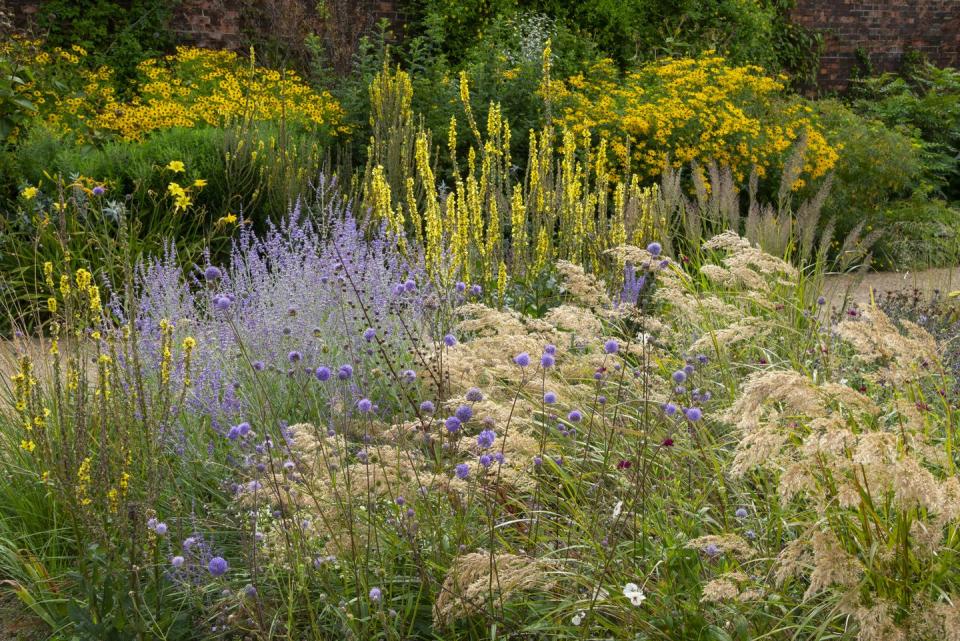
Summer heatwaves can leave our gardens parched and cause real damage to our favourite plants. The solution? Consider planting a dry garden.
'To create a successful dry garden, start by assessing your garden setting. Watch the local rainfall patterns, determine your soil type, and evaluate how much sun your garden area receives,' the experts explain.
So what are the best drought-tolerant plants? ‘Ideal plants for such gardens include lavender, sedum, thyme, rosemary, euphorbia, agapanthus, salvia, ornamental grasses, and erigeron. These plants thrive in well-drained soil and full sun, offering drought tolerance and adding a variety of textures, colours, and forms to your garden, making it beautiful and eco-friendly,' they reveal.
Smart gadgets
• Smart gadgets can make gardening more efficient and rewarding
You may have added a smart gadget or two inside your home but smart gardening gadgets can also enhance your sustainable gardening experience. Recommended gadgets include soil moisture sensors which measure the moisture levels in garden beds or pots to help prevent overwatering or underwatering by alerting you when your plants need water. Another essential gadget is the automated watering system. Like smart irrigation controllers, these can be programmed to water your plants at specific times of the day and the schedule can be adjusted based on the weather to ensure your garden receives consistent care, with no water wastage.
Follow House Beautiful on TikTok and Instagram.
You Might Also Like


